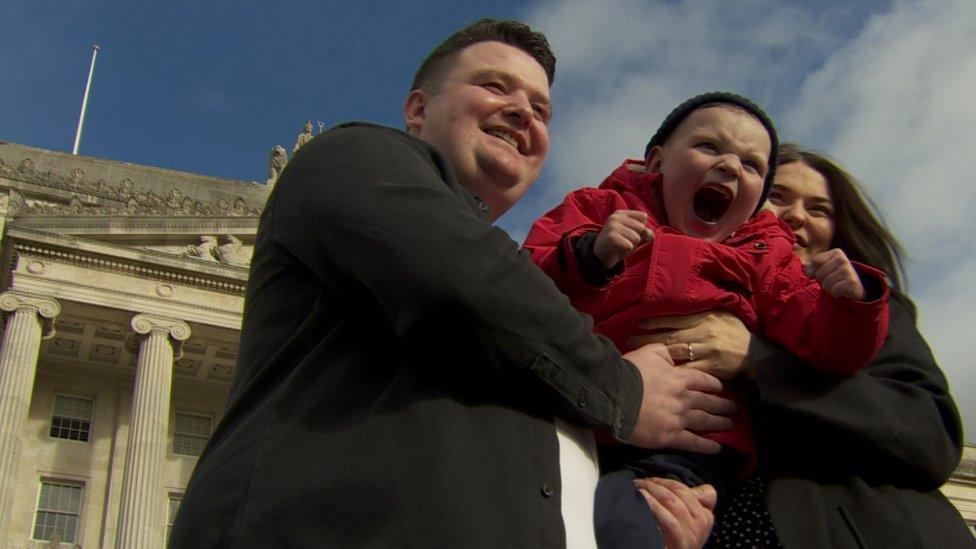Dáithí's Law on organ donation clears final hurdle in Commons
- Published
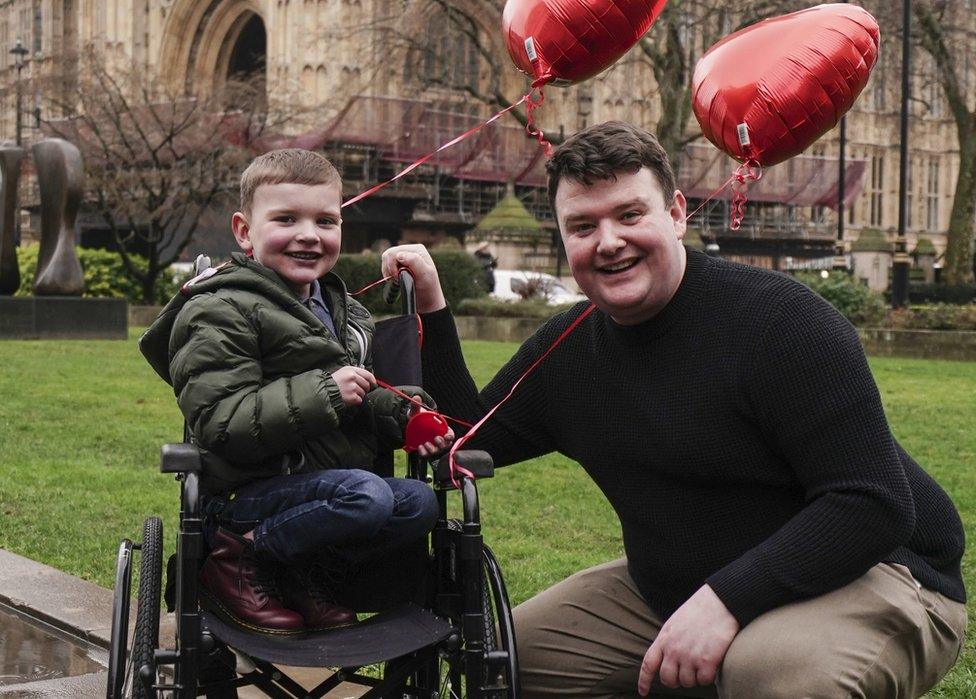
Dáithí and his father Máirtín took heart-shaped balloons to Westminster
MPs have backed Dáithí's Law that will allow an opt-out organ donation system to be implemented in Northern Ireland.
Named after six-year-old Dáithí Mac Gabhann, who needs a heart transplant, it had been delayed due to the political stalemate at Stormont.
His family was in the public gallery at Westminster with other campaigners as the legislation was passed.
Speaking outside Parliament, Dáithí's father said it was a "very emotional day" with "celebration in the air".
"The victory of this is finally sinking in... we didn't think we would be here today," said Máirtín Mac Gabhann.
Watch the moment Dáithí hears that the law named after him is to be pushed through at Westminster
The government had agreed to amend another bill to ensure that Northern Ireland joins the rest of the UK in having new organ donation laws.
The bill is being fast-tracked through Parliament and is expected to become law on 6 March.
It will then take about three months until the opt-out system can effectively begin in Northern Ireland, meaning it could be in place by the start of summer.
Before the debate, the family met Commons Speaker Lindsay Hoyle, who gave the boy a teddy bear, and Northern Ireland Secretary Chris Heaton-Harris.
Democratic Unionist Party MP Carla Lockhart told the Commons that the law was about "protecting life and I think that is absolutely wonderful".
"I would encourage the message [from Daithi's dad] to go forth from this chamber today in every household that is listening in and that has been inspired by Daithi and his family, to have that serious conversation and to ensure that your loved ones know your wishes around organ donation."
SDLP MP Claire Hanna told the Mac Gabhann family: "You should be so proud of all that you've achieved together.
"You've been a hero to so many people and we all just hope that you get good news and that you get a new heart soon, and that we're all with you."

What is Dáithí's Law?
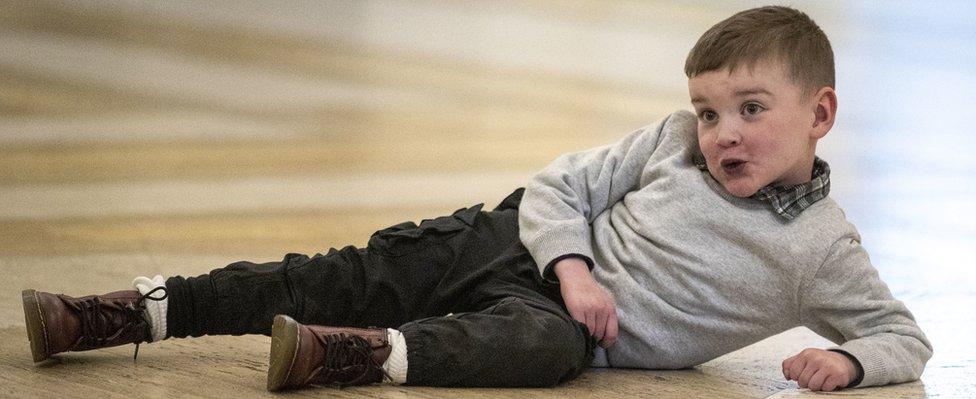
Northern Ireland is the only part of the UK where an opt-out organ donation system is not in place.
Dáithí's Law was introduced in the Stormont assembly in 2021 and passed its final stage in February 2022.
It would mean all adults in Northern Ireland would be considered a potential organ donor after their death unless they specifically stated otherwise.
But last month it emerged that additional legislation was needed to specify which organs and tissues were covered under the opt-out system.
Read more: What is Dáithí's Law and why has it been delayed?

Mr Heaton-Harris previously said an amendment would be made to legislation going through the Commons on Wednesday, the Northern Ireland (Executive Formation) Bill, external.
On Monday, the secretary of state said the government's intervention was an "exceptional" case and was being done "in recognition of just how important this issue is".
Last month an attempt to pass organ donor laws at Stormont failed after the Democratic Unionist Party (DUP) blocked the election of a Speaker.
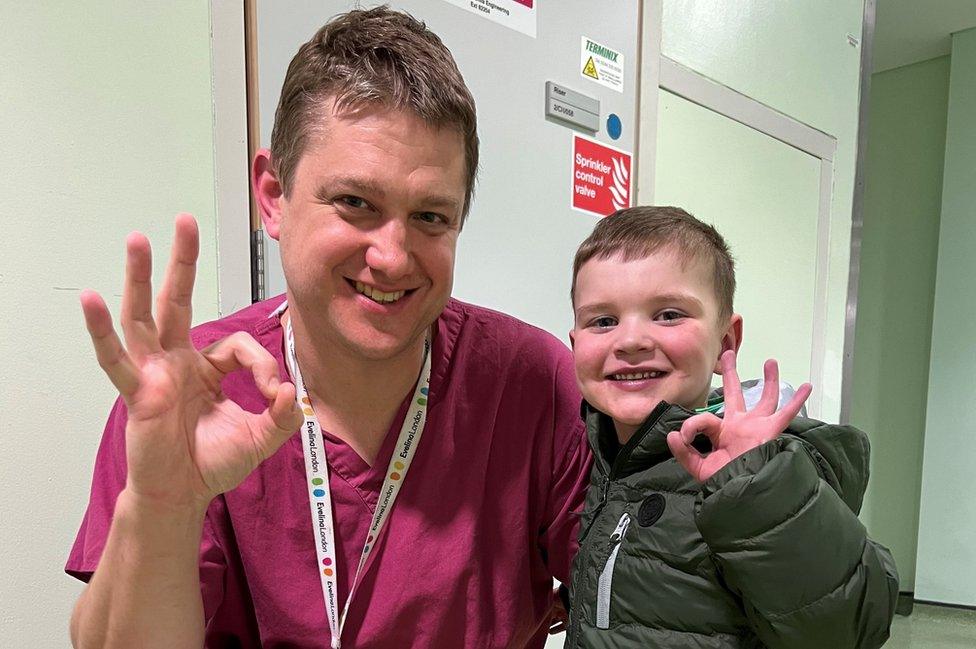
Dáithí visited St Thomas' Hospital in London on Tuesday where he met surgeon Dr Jon Lillie
Northern Ireland has been without a devolved government for a year due to the DUP's boycott of the power-sharing institutions over its protest against post-Brexit trade rules known as the Northern Ireland Protocol.
The Northern Ireland (Executive Formation) Bill, which is expected to pass all of its Commons stages on Wednesday, will also extend the deadline for holding another assembly election in Northern Ireland.
It will further delay the requirement for the formation of an executive at Stormont until 18 January next year and delay an Assembly election to 11 April at the latest.


Dáithí and his parents had a front-row seat as the law they've fought so hard for was finally passed in Parliament.
The family have met MPs and the Commons Speaker Lindsay Hoyle, who gave the six-year-old a teddy bear.
Dad Máirtín and mum Seph say the legislation being passed at Westminster in their son's name feels like things have come full circle.
This was their moment as what has been a personal journey reached a big political milestone.

Mr Heaton-Harris said getting the Stormont executive up and running again was his "top priority" and the bill would create "time and space" to help achieve that.
"The bill will also see the installation of an opt-out organ donation system," he said.
"While this exceptional intervention by the government is welcome and important, I am disappointed the decision was not taken by locally-elected decision-makers in the Northern Ireland Assembly."
Related topics
- Published20 February 2023

- Published14 February 2023
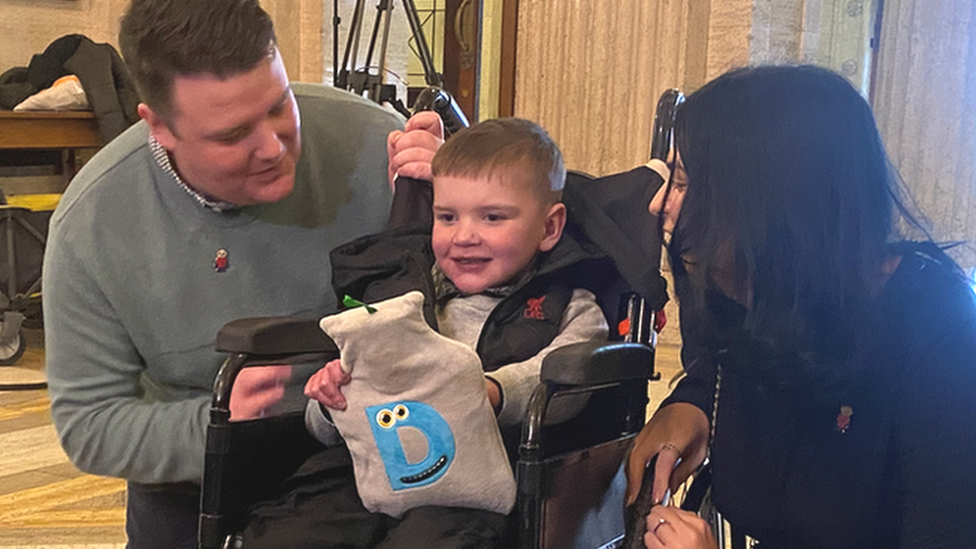
- Published13 February 2023
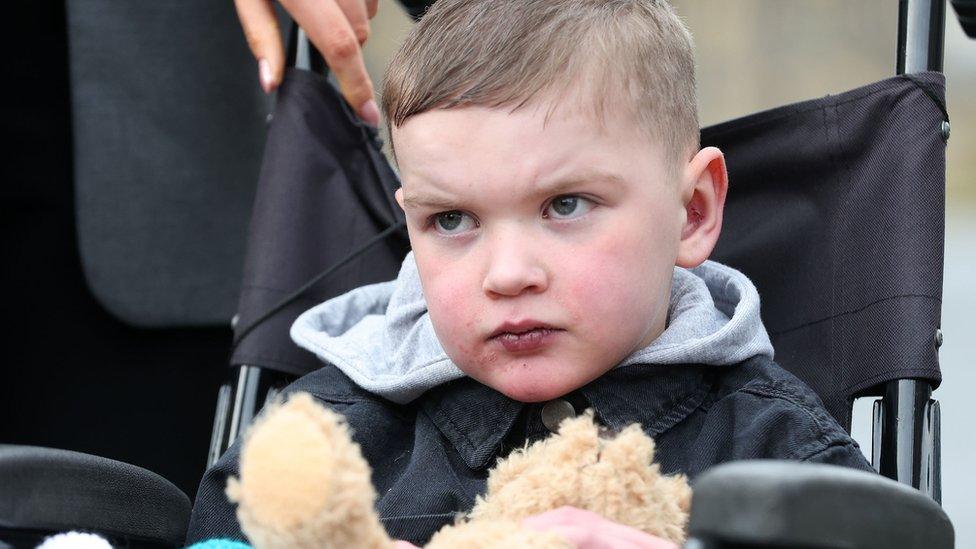
- Published8 February 2022
